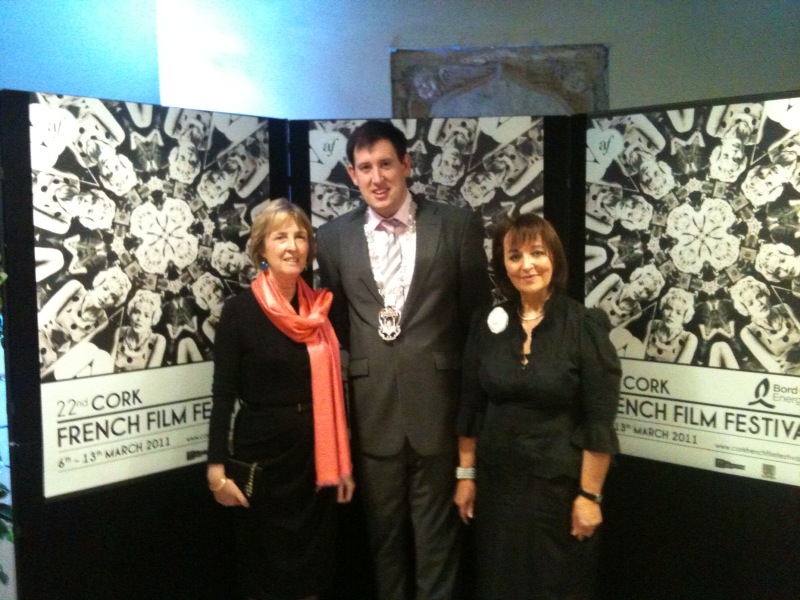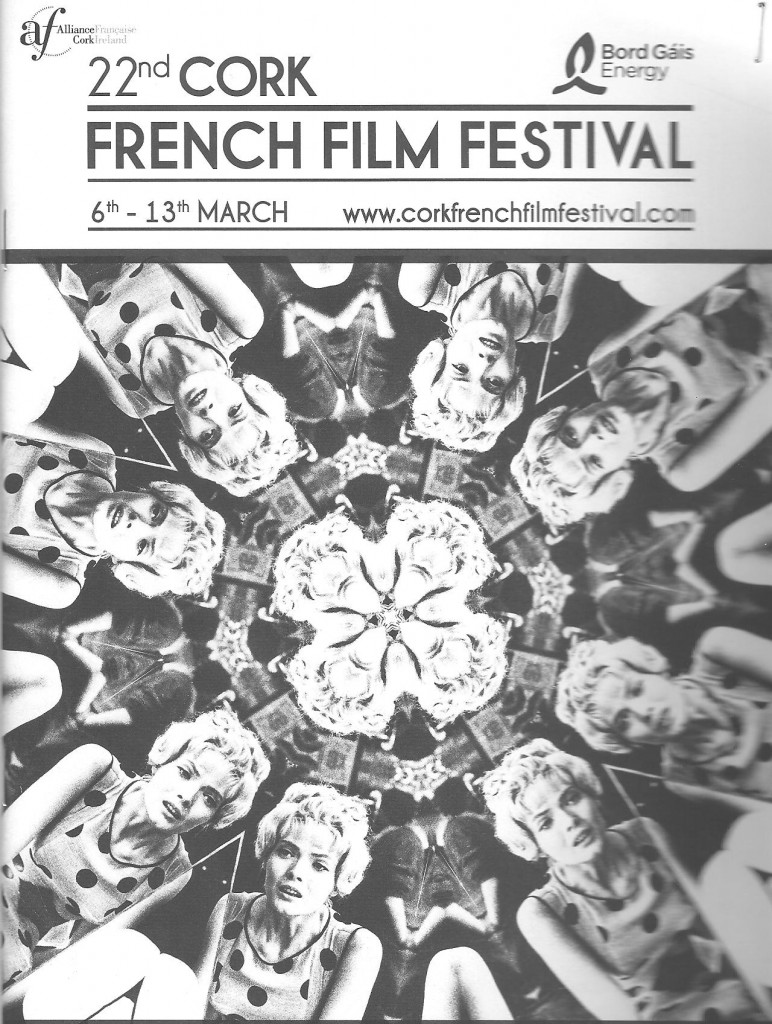Last night (Sunday 6 March 2011) I had the pleasure of deputising for the Lord Mayor and opening the 22nd Cork French Film Festival at the Cork Vision Centre; Very well done to all the organisers, check out http://www.corkfrenchfilmfestival.com/
Kieran’s Comments at the
Launch of the Cork French Film Festival, 2011
Eye on France
French Ambassador, members of the film commitee, sponsors, John X Miller, ladies and gentleman, it’s a great pleasure to be at the launch of one of Ireland’s key film festivals, the Cork French Film Festival this evening.
France is the birthplace of cinema and was responsible for many of its early significant contributions. The French film industry in the late 19th Century and early 20th Century was among the world’s most important. Auguste and Louis Lumière invented the cinématographe and their L’Arrivée d’un train en gare de La Ciotat in Paris in 1895 is considered by many historians as the official birth of cinematography.
France has a strong indigenous film tradition; France has also been a gathering spot for artists from across Europe and the world. For this reason, French cinema is sometimes intertwined with the cinema of foreign nations. Directors from nations such as Poland, Russia as prominent in the ranks of French cinema as native Frenchmen. French directors have been important in the development of cinema in other countries, such as in the United States. It is noted for having a particularly strong film industry, due in part to protections afforded by the French government.
Nouvelle Vague and Cléo from 5 to 7:
Tonight the programme commences with a screening of Cléo from 5 to 7 directed by Agnes Varda in 1962. The story starts with a young singer, Florence “Cléo” Victoire, at 5PM June 21, as she waits until 7PM to hear the results of her cancer test. The film is noted for its handling of several of the themes of existentialism, including discussions of mortality, the idea of despair, and leading a meaningful life. Agnes’s movies, photographs, and art installations have often focussed on documentary realism, feminist issues, and social commentary — with a distinct experimental style. And it is not for me to try and pin down an artist to a genre.
Especially as Agnes and many others way back over 50 years ago tried to break the mould of traditional cinema plus influenced the growth of Nouvelle Vague.
Many like Agnes in the 1950s and 1960s attempted to engage in their work with the social and political upheavals of the era, making their radical experiments with editing, visual style and narrative part of a general break with the conservative paradigm.
The movement has its roots in rebellion against the reliance on past forms, criticizing in particular the way these forms could force the audience to submit to a dictatorial plot-line.
New Wave critics and directors studied the work of western classics and applied new avant garde stylistic direction. The low-budget approach helped filmmakers get at the essential art form and find what was, to them, a much more comfortable and honest form of production.
These movies featured existential themes, such as stressing the individual and the acceptance of the absurdity of human existence.
Likewise, the influence of the movement was seen in a number of other national cinemas globally – beginning in the 1960s, and continuing to the present day. Similar movements arose in a number of European countries and further afield to Japan.
People like Agnes cannot be pinned down – she is director, screenwriter, editor, actor, producer, installation artist, photographer and much more.
And perhaps that is why her presence is so very apt today especially if we connect it into Ireland’s story. Once again Ireland has come to a cross-roads where it must now once again be creative and think outside of the box, so the nation can move forward.
Film and motivation:
The medium of film power has the power to grasp, encourage wonder, inspire confidence, motivate a self-purpose, provoke questions and the imagination and even draw in the viewer and even disturb and so much more – lessons of life can be presented and debated. Unlike music or theatre, a movie can show different aspects of the society. And the full diversity of French film is covered in the programme in our City.
I have no doubt for many of those present to view Cork’s French Film Festival, you already have a love of film and even art house cinema. Ladies and gentlemen perhaps there is so much to learn through the medium of film – Actors and directors all bring their own talents, confidence self pride, self belief and a desire to perform their medium. Those are all very important traits
Ladies and gentlemen, in this world, we need more of such confidence, pride and belief – we need to mass produce these qualities, all of which these films stand for
I would also like to thank all of the grant aided bodies and sponsors who saw the opportunity to bring a taste of international culture to Cork. But I encourage all of us to keep watching, praising, critiqing and even giving our own direction to what not only film genres we should watch but also how film can be harnessed to nurture people’s motivations.
This is where film gives hope and have no doubt has saved souls.
I wish to congratulate all involved in the festival and wish the festival all the best for the future. And to the cinema goer, keep watching!

